Many of our native species have excellent medicinal qualities. One such plant is Alstonia scholaris, which is a one stop pharmacy in the forest.
Alstonia scholaris in situ
I saw this attractive specimen in March 2022 at Deception Bay just north of Brisbane. Only a sprinkling of flowers remain. Thousands of narrow pods up to 400+mm long shroud the tree. The peak flowering must have been in February.
There are two semi mature trees and I assume that these specimens came from the experimental and research plantations of native trees established in the early 1880’s on the Bancroft Farm, which contains the park area. The farm has been cleared since the early 1900’s for a small lot coastal suburb.
Dr Joseph Bancroft was a renowned medical researcher particularly of the native flora, as was his son.
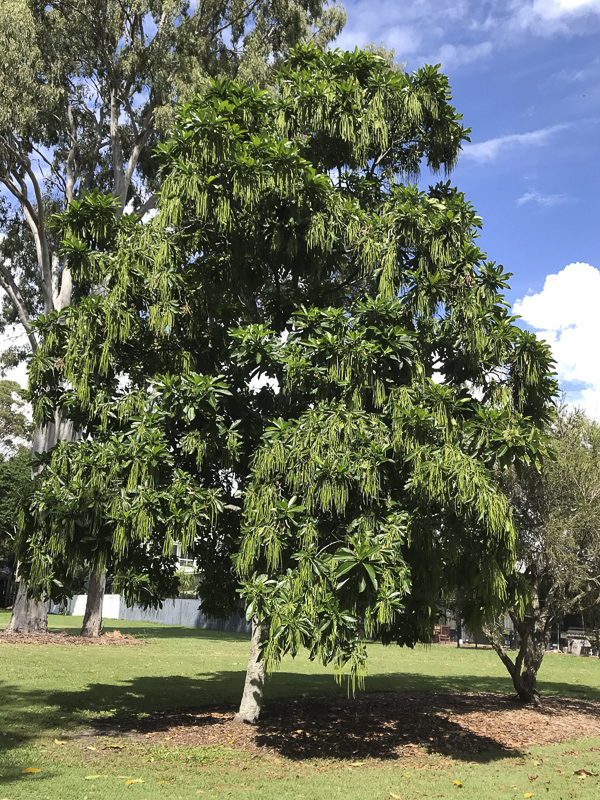
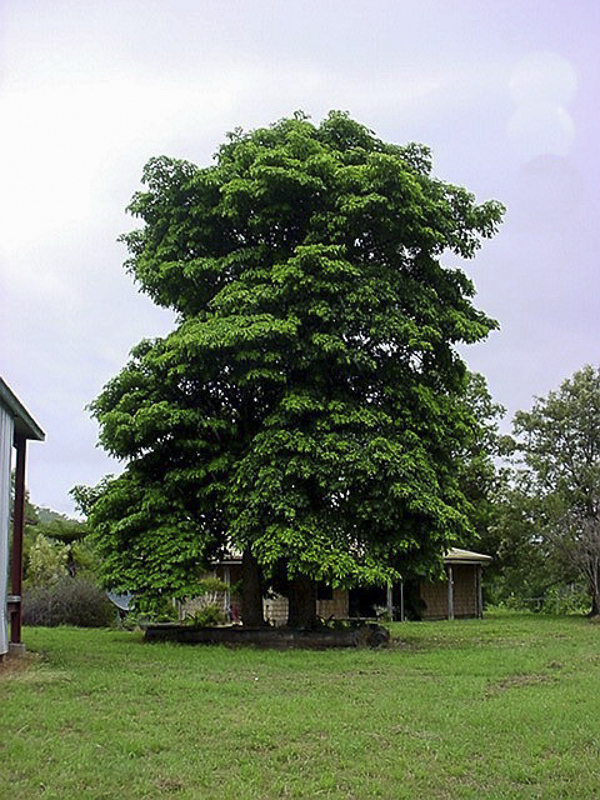
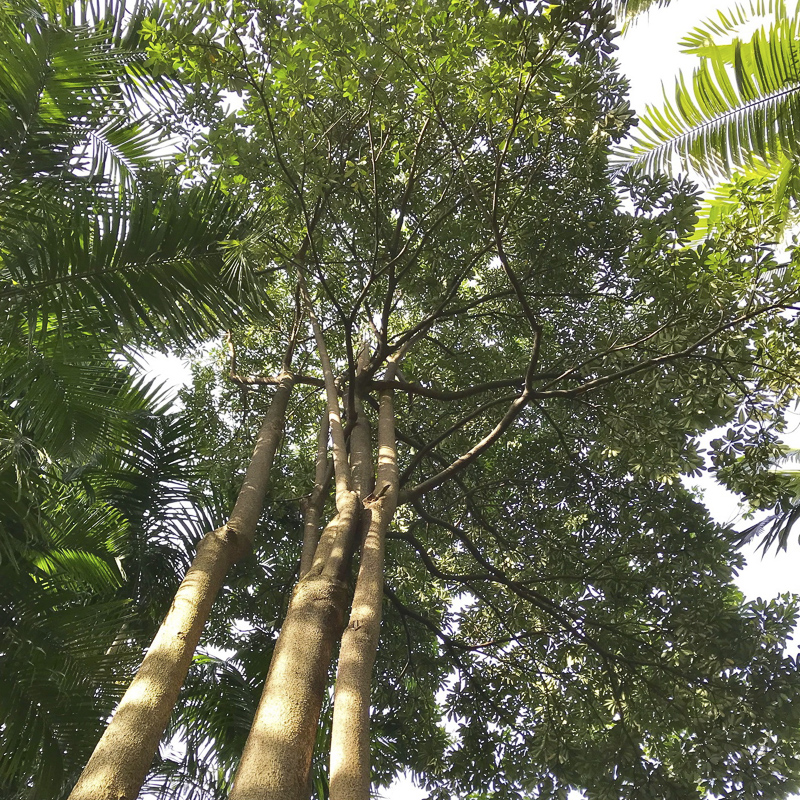
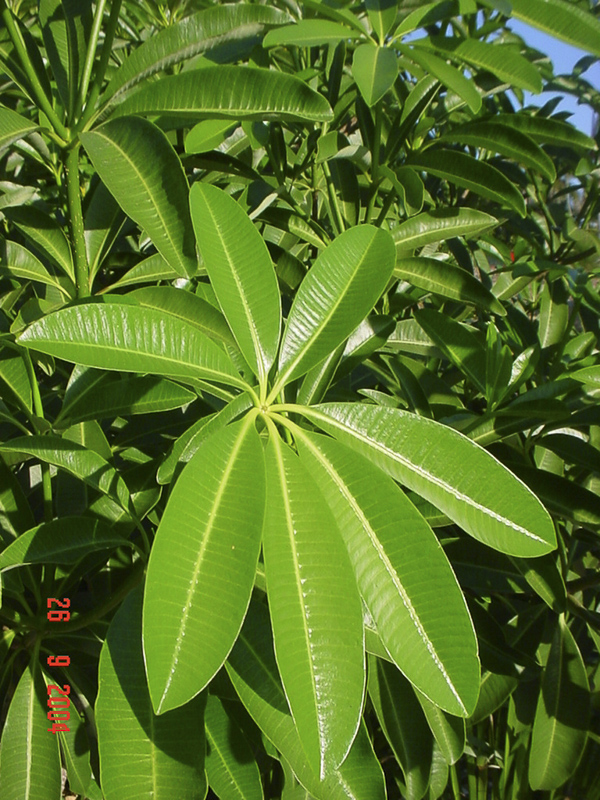
About Alstonia scholaris
Common name: Milky Pine, Green Spaghetti Tree
Native to the forests of northern Queensland, India, Asia-Pacific and South China, many cultures value its properties. This includes the Yirrganydji and Djabugay people of Northern Queensland.
Medicinal qualities to make it a one stop pharmacy
The white milky latex is a good tonic. It provides a quality chewing gum, which treats toothache, mouth ulcers and rheumatic pain. It also also makes excellent glue.
The leaves are used for fish poison. Sap from leaves or a leaf decoction is applied as a wash for skin diseases, used as a gargle, and to clean infected wounds.
Flowers emit an intoxicating perfume. Seeds are strongly hallucinogenic and also an aphrodisiac.
The ground bark and root juices have bitter astringent properties that reduce headache, lower fever, treat chest pain, relax spasms, stimulate lactation and expel intestinal worms. Abdominal pains, bowel complaints, chronic diarrhoea, and snake bites have also been treated with the plant.
Pencils and making manual tools use the timber. Altogether it seems to be a one stop Pharmacy in the forest!

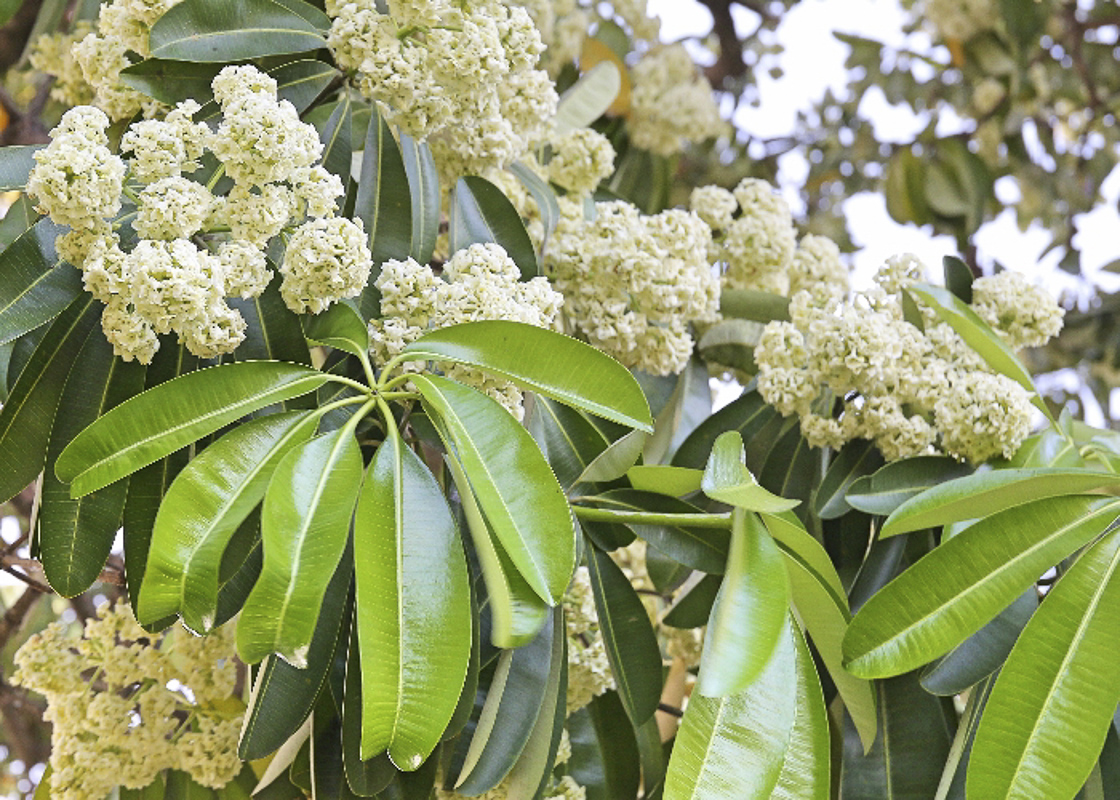
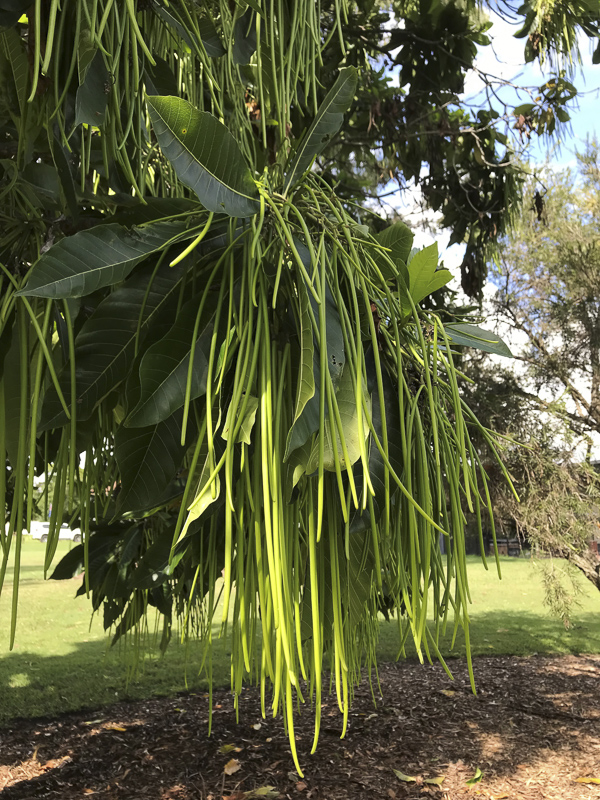
For more information about rainforest plants, see the study group on Rainforest Plants. While now closed, there is much useful information in their newsletters.
 Australian Native Plants Society (Australia)
Australian Native Plants Society (Australia)